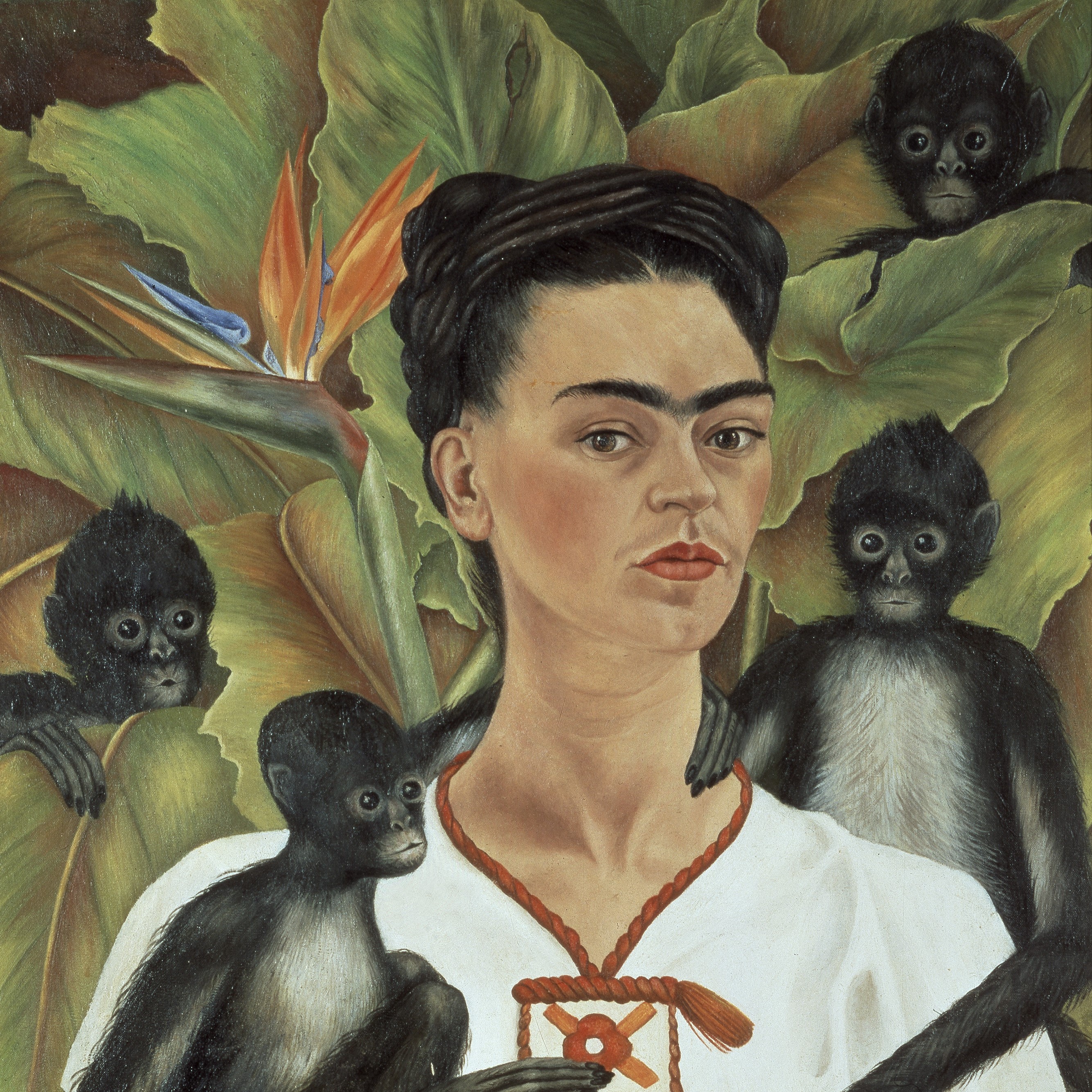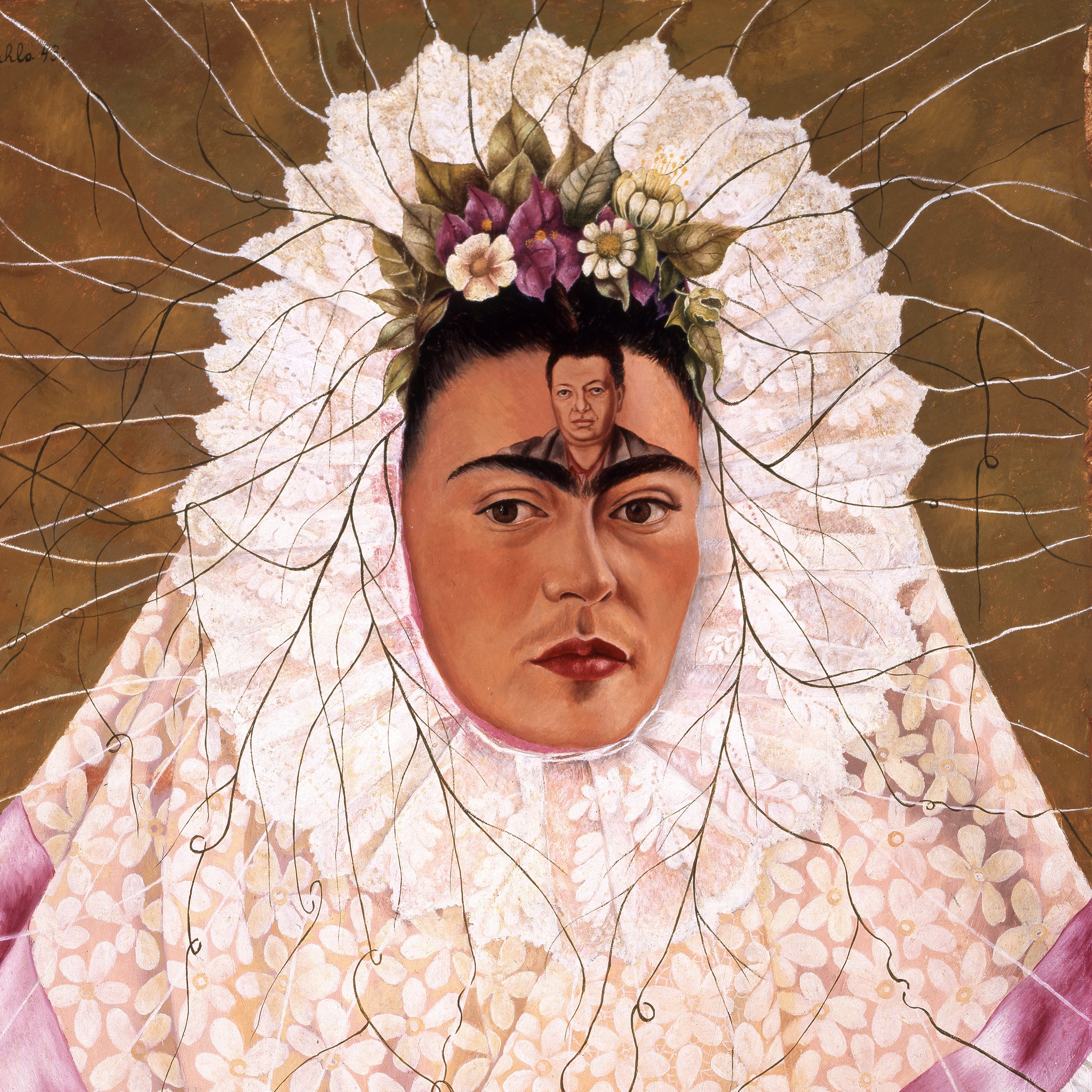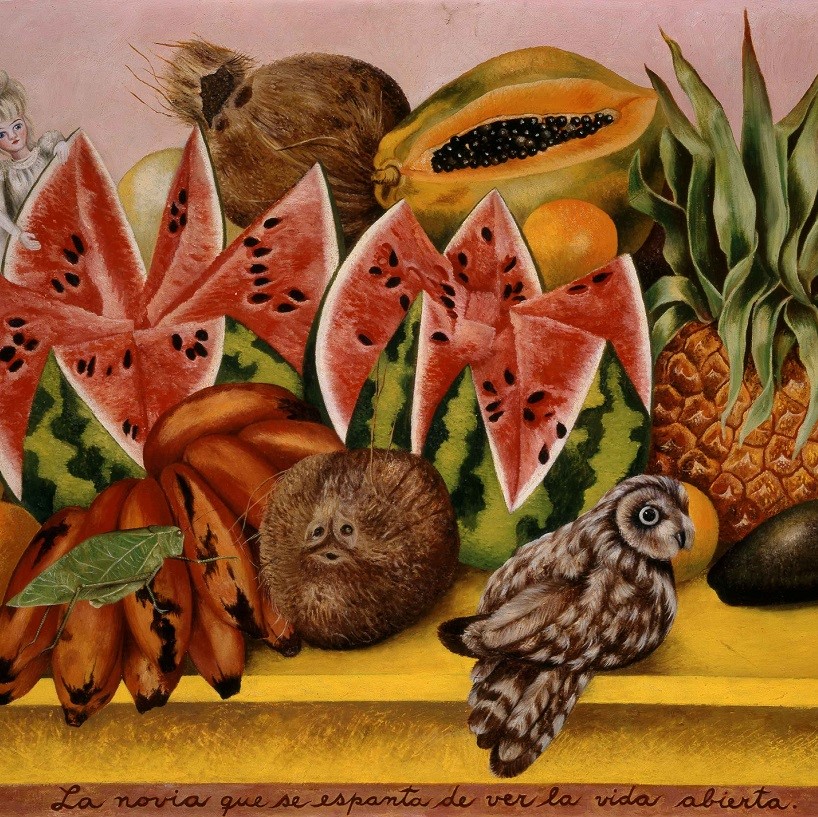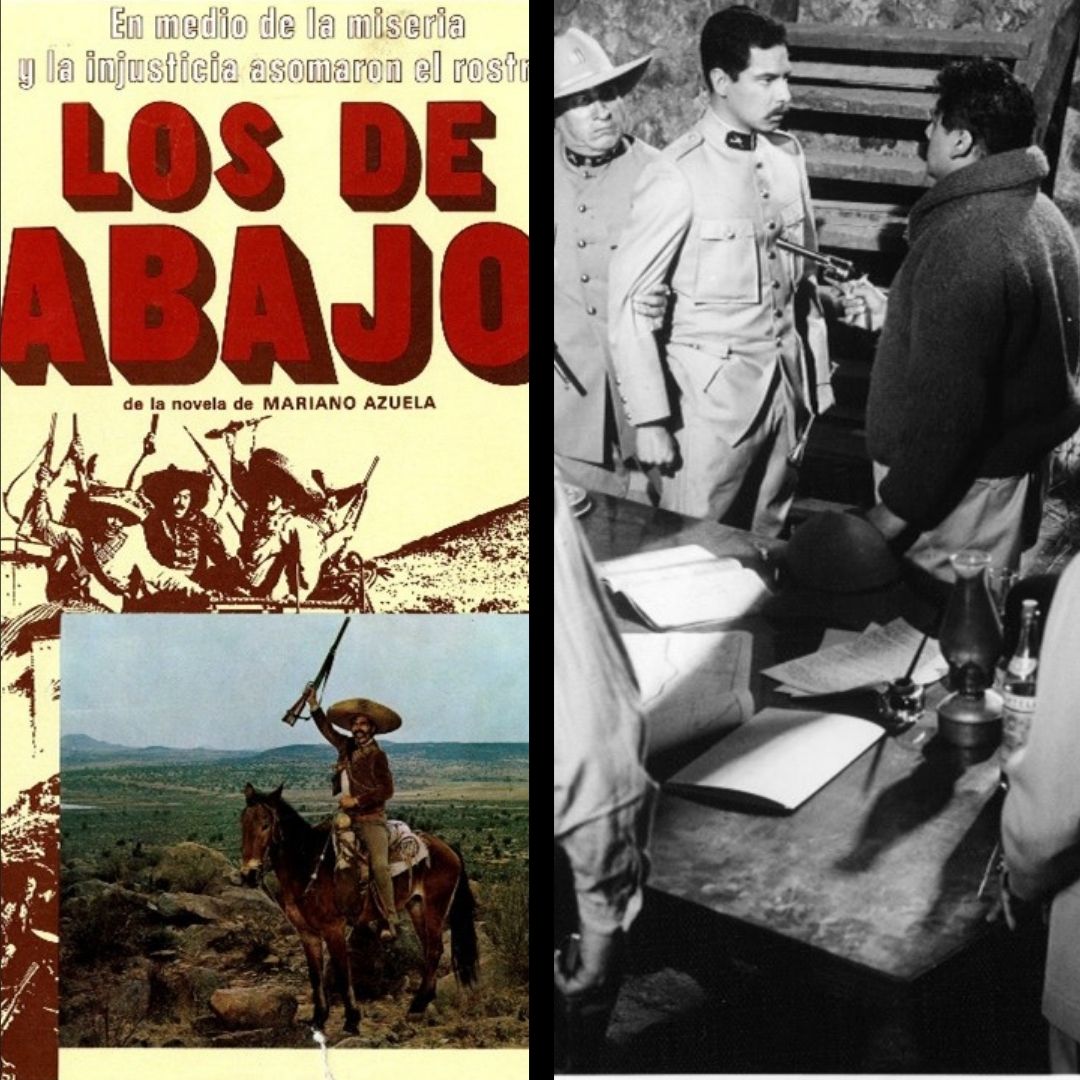10am—2.30pm
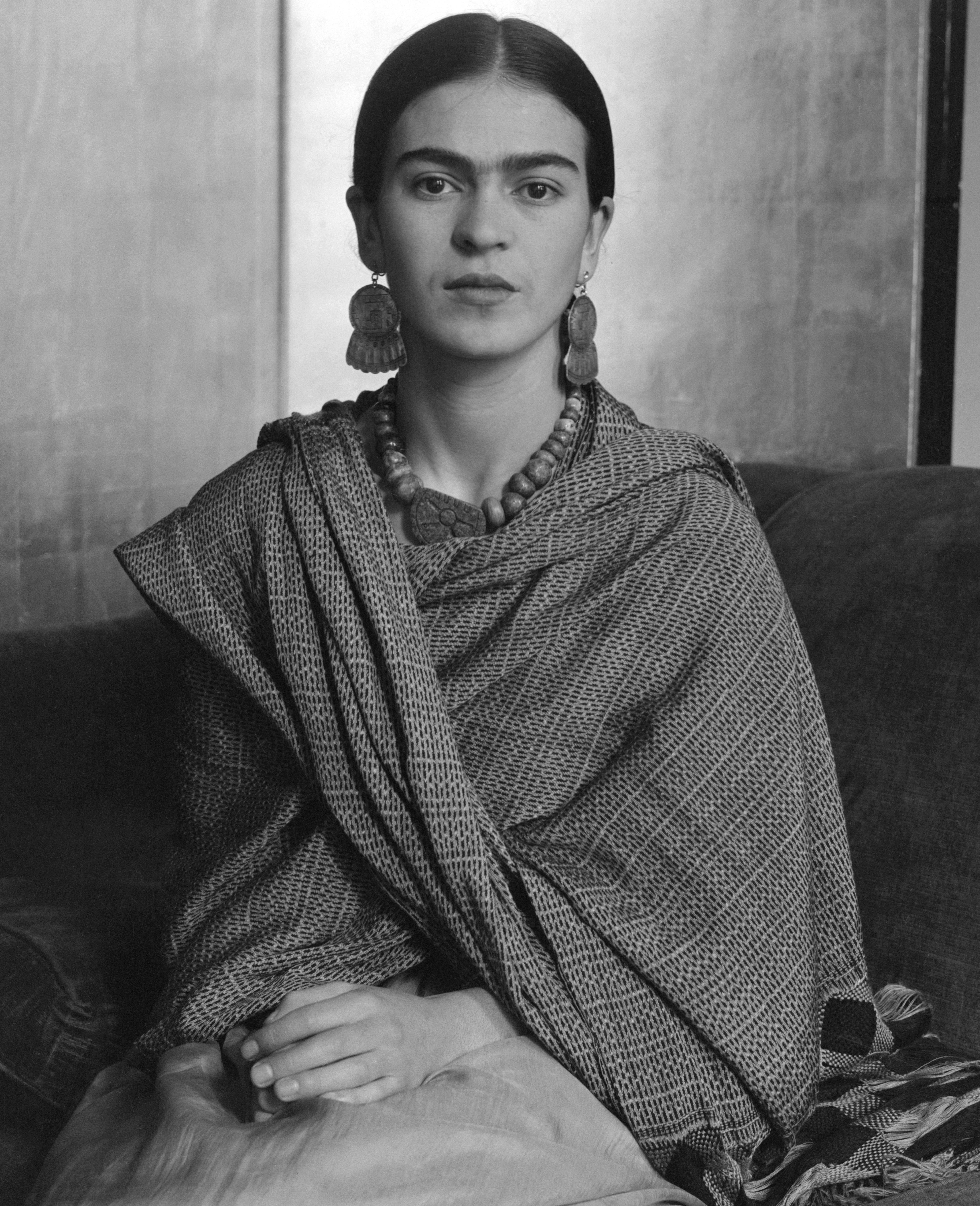
event Details
ABOUT
The series of talks explores the cultural and artistic foundations of modern art in Mexico and provides context to the phenomenon of Frida Kahlo, Diego Rivera, and their artistic circle. Hear from New Zealand-based Mexican academics, along with a leading expert on expatriatism, and deepen your appreciation of the political and artistic environment in post-Revolution Mexico.
The first talk by Dr Walescka Pino-Ojeda will track the many lives of Frida Kahlo as a daughter of the Mexican Revolution and central figure in the construction of a new “Mexicanidad” — an identity that acknowledged the indigenous character both of Mexico’s foundations and its persistent contemporary worldviews and practices. Next, Dr Leonard Bell will reveal the innovative and artistically productive relationships between Mexicans and European and North American refugees fleeing conflicts. Finally, turning to Frida herself, Dr Diana Albarrán González will explore how Kahlo used her clothing as a symbol of political and cultural identity. Going beyond Kahlo’s style, Albarrán González sheds light on the richness of Indigenous artisans and Mexican textile traditions.
SERIES OUTLINE
This series comprises three illustrated talks presented in person at the Gallery. Tickets cover admission to three lectures and a light morning tea upon arrival. Lunch can be purchased as an add-on.
Lecture I: The Many Lives of Frida Kahlo | The Revolutionary Female Artist in Today’s Consumer’s Society
Presenter: Dr Walescka Pino-Ojeda
Despite being born in 1907, Frida Kahlo enjoyed saying she was born in 1910, the same year the Mexican Revolution began. Though marginalized with respect to her generational artistic peers as both a woman and a disabled person, she was indeed a daughter of the Revolution.
Both the revolution and her physical condition shaped Kahlo’s aesthetics and politics, where art and life coexisted indivisibly. This central aspect of her work led her to be regarded among the “modern” artists of her time, a category she vehemently refused, as it conflicted with both her own and the broader revolutionary project’s concept of a new “Mexicanidad” — an identity that acknowledged the indigenous character both of Mexico’s foundations and its persistent contemporary worldviews and practices.
From this position, Kahlo’s art explored the depth of the woman’s condition, the fluidities of her own gender and ethnic identity, and our relationship with whenua, mother earth. As such, although immersed in the Muralist movement, her art was not monumental but introspective and intimate. These unique trends would gain currency from the 1980s onwards — 30 years after her death — with multiple identities finding a repository of poetics in her artistic language. The potency of this art is also what made it so commodifiable in contemporary consumer culture. It is in this context that this presentation will explore the many lives of Frida Kahlo.
Lecture II: Photography in mid-20th century Mexico: émigrés, refugees and Mexican modernism
Presenter: Dr Leonard Bell
From the late 1930s, Mexico offered a haven for thousands of refugees from Fascism and Nazism in World War II-ravaged Europe. These displaced peoples comprised an extraordinary group of artists, including photographers, whose interactions with native-born peoples reshaped the arts in Mexico.
Photography figures prominently in Frida Kahlo and Diego Rivera: Art and Life in Modern Mexico with works by artists who either took refuge in or migrated to Mexico, such as Manuel and Lola Álvarez Bravo, Lucienne Bloch and Frida’s father, Guillermo Kahlo. Most of the works in the exhibition come from the collection of Jacques and Natasha Gelman, both of whom were émigrés from Europe.
This lecture will explore the experiences and impacts of migrant and native artists in mid-20th century Mexico, when, perhaps paradoxically, political and social conflicts generated creative and innovative encounters between peoples from diverse social, national, and ethnic backgrounds.
Lecture III: Beyond Frida Kahlo's style: Textile identities in Mexico
Presenter: Dr Diana Albarrán González
Frida Kahlo has been described as a fashion icon, inspiring artists, designers, and creatives worldwide. Kahlo's choice of garments went beyond styling and signalled political and cultural identity during Mexican modernism. However, the Indigenous textile artisans who created those garments have often been an unacknowledged source of this significant aspect of her style.
Mexico has a rich textile tradition rooted in Mesoamerican civilisations, extending from southern North America to most of Central America, before the colonisation of those territories. It is still present and evolving among different pueblos originarios (Indigenous peoples), whose identity is strongly linked to artisanal textile creation. Historically, artisanal garments have served as marks of identity, reflecting the wearer’s social, economic, geographical, political, and cultural positioning. These textiles have influenced the perception of Mexican identity, both within the country itself and globally.
This lecture explores the traditional garments in Frida Kahlo’s work while linking them back to their original sources. Going beyond her style, we seek to understand the depth and richness of Mexican textile traditions and honour the Indigenous artisans who continue to enrich the diversity of Mexican culture.
BIOGRAPHIES
Dr Walescka Pino-Ojeda is the director of the New Zealand Centre for Latin American Studies at The University of Auckland. Building on Latin American Cultural, Literary, Memory and Trauma Studies, as well as on the regions’ neoliberal post-authoritarian context, she has published on women and gay literature, photography, civic activism, film, and popular music. Recent books include, On Castes and Bridges: Conversations with Elena Poniatowska, Rosario Ferre and Diamela Eltit (2000) and Night and Fog: Neoliberalism, Memory and Trauma in post-authoritarian Chile (2011). She is presently completing a volume that analyses the role that the arts, culture and civic activism have been playing in overcoming the traumas of the past in order to consolidate ongoing processes of re-democratization in post-authoritarian Chile.
Dr Leonard (Len) Bell is an independent art and cultural historian. He previously taught art history at the University of Auckland. His writing on cross-cultural interactions and representations and the work of travelling, migrant and refugee artists and photographers has been published worldwide. Recent books include Marti Friedlander: Portraits of the Artists (2020), Strangers Arrive: Émigrés and the Arts in New Zealand, 1930–1980 (2017) and Jewish Lives in New Zealand: A History (2012, co-editor).
Dr Diana Albarrán González is a Native Latin American design researcher from Mexico and a lecturer at the University of Auckland with 18 years of international experience. Her PhD research focused on the decolonisation of design in collaboration with Mayan weavers from her birthplace, Chiapas, Mexico. She proposes a Buen Vivir-Centric Design model that embraces collective well-being, textiles, crafts-design-arts, embodiment and creativity. She is a craftivist, a mother and an active member of the Latin American community in Aotearoa, seeking to support community well-being and connections between Moana-nui-a-Kiwa and Abya Yala.
The exhibition is organised by the Vergel Foundation and MondoMostre in collaboration with the Instituto Nacional de Bellas Artes y Literatura. It is proudly supported by Craigs, AUT, as well as Omnigraphics, with special thanks to the Auckland Art Gallery Foundation.
PRICING
Members $73 + booking fees
Open to AAG Members. Includes admission to all three lectures, alongside access to recordings of each. Members with a valid guest pass can purchase an extra ticket for this price.
Students $48 + booking fees
With valid student ID. Includes admission to all three lectures, alongside access to recordings of each.
Non-Members $150 + booking fees
Includes a one-year membership, admission to all three lectures and access to recordings of each.
Add-on: Lunch $20 + booking fees
This event is part of our membership programme. Members receive free unlimited entry to Frida Kahlo and Diego Rivera: Art and Life in Modern Mexico. Join us for $80 per year (discounts available for students and seniors).
Image credit: Imogen Cunningham, Frida Kahlo Photograph, 1931. © 2022 Imogen Cunningham Trust / www.imogencunningham.com
- Date
10am—2.30pm
- Location
- Auditorium
- Cost
- Members $73, Students $48, Non-members $150 (includes a membership) + booking fees
Related
Frida Kahlo and Diego Rivera: Art and Life in Modern Mexico
—
Adults $24.50, Concessions $19.50, Members and children 12 & under FREE
BOOKED OUT | Members After-Hours Viewing | Frida Kahlo & Diego Rivera: Art & Life in Modern Mexico
6—8pm
Free for Members (RSVP required) Book now
Día de la Revolución in golden age cinema
11am — 3pm
Free - bookings essential | Exhibition admission additional Book now
